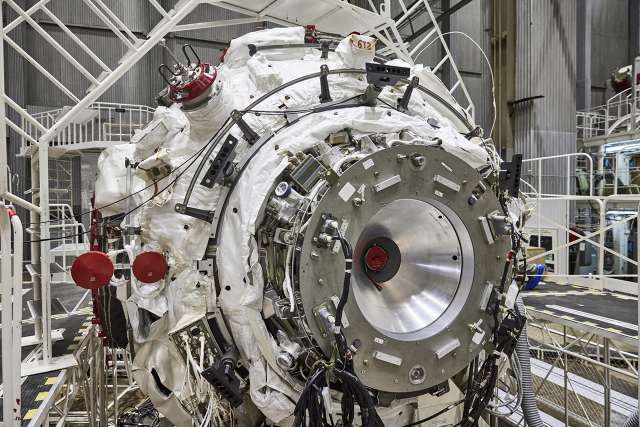A launch vehicle with a node module "Berth" was launched from the Baikonur cosmodrome. It should be docked to the multipurpose module "Science" on November 26.
The launch of the Soyuz-2.1b rocket with the Progress M-UM module transport cargo ship and the Berth node module took place at Baikonur. Nine minutes after launch, the head part of the ship and the module should separate from the third stage of the carrier.
The rocket will launch 8.18 tons of payload, which will be a record for Soyuz-2 launches to the ISS. The flight will take two days. They want to dock with the multipurpose laboratory module "Science" on November 26. Now the docking node of the "Science" is occupied by the Progress MS-17 device. Its undocking is scheduled for the 25th.
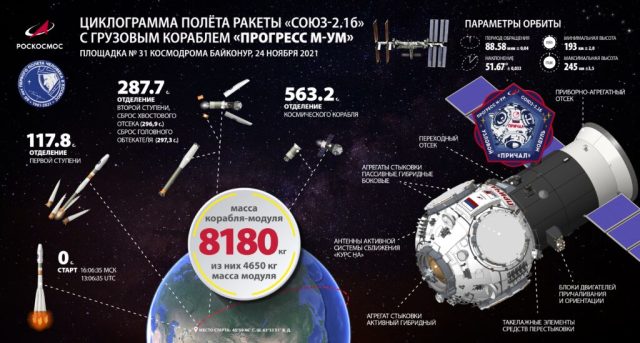
©roscosmos
Progress M-UM was created on the basis of the Progress spacecraft specifically to deliver the Berth to the International Space Station. For Progress, this is the 171st launch.
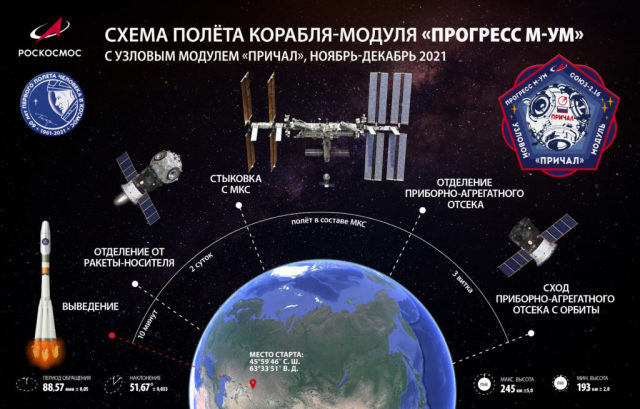
©roscosmos
The module ship will also bring about 700 kilograms of various additional cargo on board the station. Among them are resource equipment, medical equipment and standard food rations for the crew.
Thanks to the new module, Russia will expand the possibilities of docking its ships with the station. It can be used to receive devices of the Soyuz-MS and Progress-MS series (up to five ships at the same time). In the future, a promising manned Eagle spacecraft can be docked to the module, the first launch of which they want to carry out in 2023.
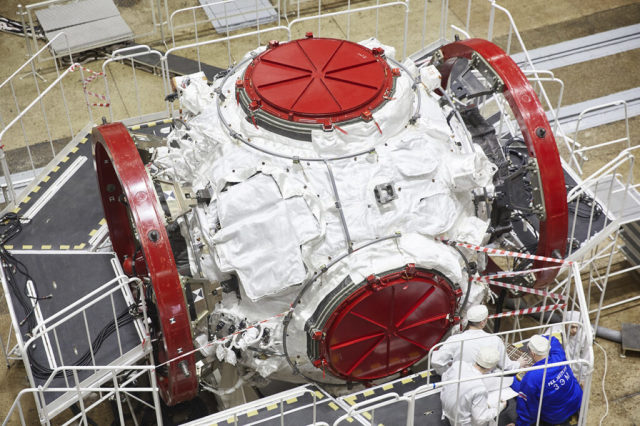
"Berth"
Image source: roscosmos
Recall that on July 21, another significant event for Roscosmos took place: the long-awaited launch of the multifunctional module "Science" to the ISS, which has become one of the largest in the history of the station. With its help, scientific and applied research and experiments are carried out.
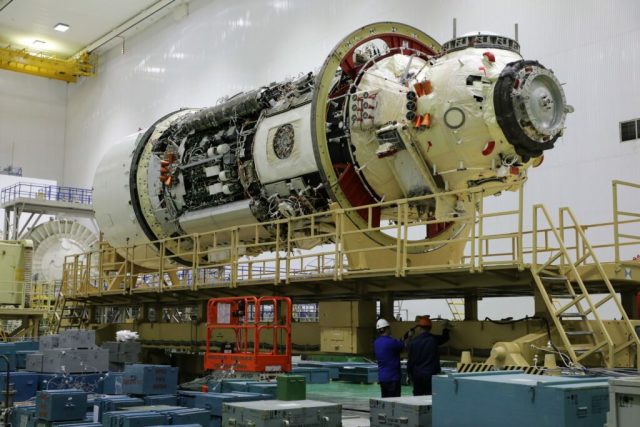
"Science"
Image source: roscosmos
The future of the station itself remains hazy. In September, it was reported that NASA wants to extend its operation for at least ten years, although before that they talked about a possible abandonment of the ISS around the middle of the decade.
In October, the head of the Russian space Agency Dmitry Rogozin expressed skepticism about the idea of extending the operation of the ISS. "Americans today at a meeting with me talked about 2030, which is hard to believe," he said.
As an alternative, Russia is considering the project of a national orbital station, which will be significantly smaller than the ISS: its mass is estimated at about 60 tons. The estimated start date of construction is 2027.
